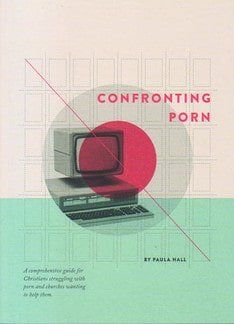There is nothing new about sexual temptation. There have always been adulterers at large, seeking to lure their prey into sin. But since the advent of printed media, photographic imaging and film, adultery or fornication has appeared increasingly in print and on screen in the form of pornography.
Technological advances present fresh challenges, with pornographic images more readily available than ever before. They may be viewed in private at the click of a mouse, without the embarrassment of needing to purchase a magazine.
Since believers are not immune to such temptations, a ‘comprehensive guide for Christians struggling with porn and churches wanting to help them’ sounds like a timely resource, especially since we are told that the author is ‘widely recognised as the UK’s leading expert in the field of sex and porn addiction’.
Confronting porn includes sections on the findings of neuroscience, the consequences of pornography, the cycle of addiction, strategies for recovery and support for ‘partners’. It makes some helpful observations along the way. Nevertheless, its foundations are fundamentally flawed.
In spite of a sprinkling of Bible verses throughout the book, the author demonstrates a low view of Scripture. For example, she writes: ‘God’s plan for sex is a great one, but the teaching we read in the Bible is limited to the days in which it was written.
‘As Christians, we have a responsibility to help people through the modern maze of negative influences and messages … Seeking God’s plan for us within our cultural context, and separating it from other influences, is often not easy’ (p.35). In effect, the Bible is treated more as a therapeutic toolbox than as the authoritative, sufficient and enduring Word of God.
There is a corresponding ambivalence towards marriage. Notwithstanding the Bible’s consistent condemnation of fornication, Paula Hill declines to uphold marriage as the only God-ordained context for sex.
Instead, she asserts that, ‘it’s clear that sex was designed for committed relationships. And within that context, we are free to enjoy God’s gift’ (p.33). Accordingly, the book refers more to ‘relationships’ and ‘partners’ than to ‘marriage’ and ‘spouses’, even though it is directed at a Christian audience.
There is also a reluctance to declare anything immoral. The morality of using erotic literature to create the mood for ‘partnered sex’, viewing animated porn, and watching a sex educational video ‘to improve my technique’ are all left as open questions: ‘I can’t offer any answers to these kinds of personal questions, I’m afraid. These are things you must bring to God and ask for his revelation about’ (p.39).
At several points in the book, the acid test of whether or not something is ‘OK for you’ is whether it fits with ‘your Christian values’. Sadly, Confronting porn rests on the sinking sand of relativism and subjectivism rather than the sure foundation of the Word of God. I cannot recommend it as a safe guide for Christians and churches.
Norman Wells
Twickenham



















